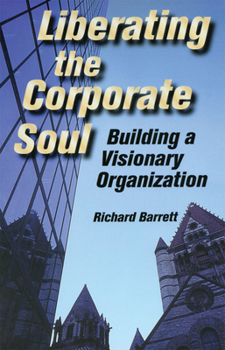Liberating the Corporate Soul
Select Format
Select Condition 
Book Overview
Tapping into the latent creativity and productivity in an organizations employees are two of the most important things any successful business should be concerned with. In a world where competition has become global, successful companies are learning to build competitive advantage through their human capital.
In turbulent times, strategic success will also hinge on whether, in the eyes of the employees and society-at-large, the organization is a trusted member of the community and a good global citizen. Developing a values-driven approach to business is quickly becoming essential for financial success. Who you are and what you stand for are becoming just as important as what you sell.
This bestselling book presents a convincing rationale for making ethical and socially responsible behavior the keystone in providing a high performance, globally successful business.





